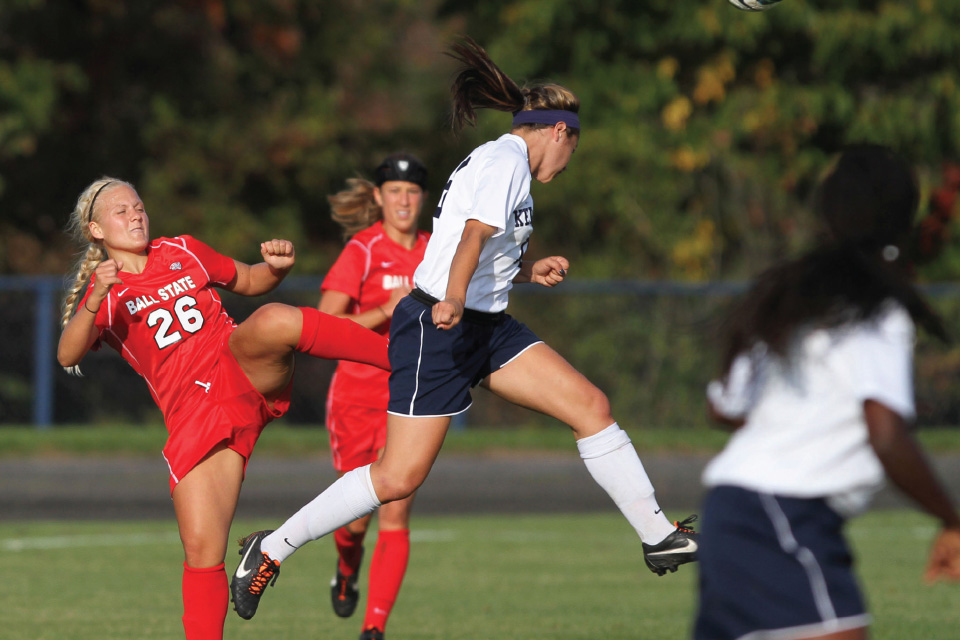Healthy Bits

Two Heads Up
While the NFL has been publicly handling the severity of players’ concussions, another kind of football has been forced to examine the neurological risks of the sport. Women’s soccer often demonstrates heading—when a player propels the ball using her head—as a fundamental part of the game, but when players’ heads collide with each other instead of the ball, the damage can be serious and long-lasting. A study published in the journal Sports Health reveals that young women are more at risk than men for a heading injury due to a greater imbalance of neck strength. Researchers at the Boston University School of Medicine have found that excessive sub-concussive and concussive trauma can lead to memory loss, light-headedness, chronic headaches, and depression. As a result, doctors are now proposing that female soccer players not be allowed to head the ball until age 14. http://bit.ly/1poRGtb
Keep on Swiveling
A new study published by researchers at the University of Mississippi Medical Center suggests that children with attention deficit hyperactive disorder (ADHD) perform better while moving or fidgeting. Researchers used boys aged 8–12 as test subjects, giving them the task of remembering and repeating a sequence of random numbers and letters while sitting in a swivel chair. The kids with ADHD performed better at this test when they were swiveling in the chair, while the kids without ADHD performed poorly with movement. Given the results, the scientists behind the study believe that—since most children with ADHD require extra stimulation—the constant movement acts as a compensatory behavior to help increase their alertness. http://bit.ly/1eGpa1Weric
Make Room for the Bread Basket
Good news for dieters and diabetics: You can still indulge in your favorite restaurant’s bread basket. The catch? You’ll have to wait to consume it until the end of the meal. According to a study published in the journal Diabetes Care, pushing bread to the end of the meal not only blunts a rise in blood sugar but can also curb your appetite. The researchers conducted the study by examining men and women with Type 2 diabetes. The groups were given two separate meals of grilled chicken, steamed vegetables, and a lightly dressed salad. The first meal had a ciabatta roll served first, and the second served the bread after the other dishes. The results showed that participants’ peak blood sugar was about 30 percent lower when they ate their bread last. http://bit.ly/1Hbt2zM






